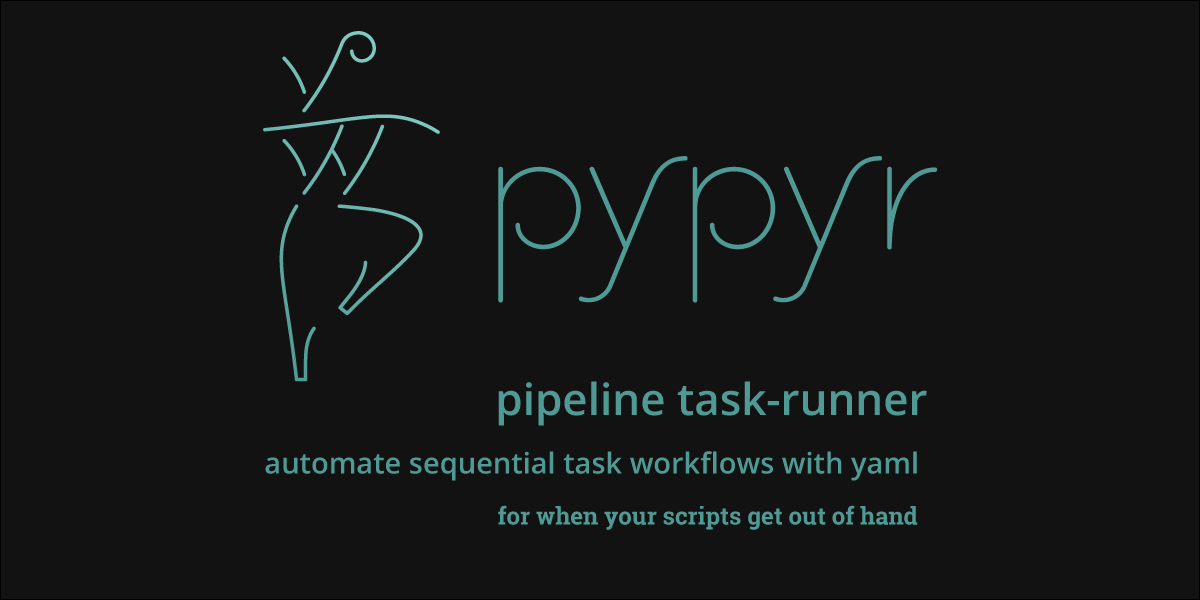pypyr
pronounce how you like, but I generally say piper as in "piping down the valleys wild"
pypyr is a command line interface to run pipelines defined in yaml. Think of pypyr as a simple task runner that lets you run sequential steps.
You can use the various pypyr containers instead of the pypyr executable, and use the docker volume mount option to mount your custom pipelines directory in the container.
You can find these images published to the public docker hub registry here: https://hub.docker.com/r/pypyr/
Find pypyr help documentation, instructions and full source code here: https://github.com/pypyr/pypyr
Contains the pypyr executable, with all the official pypyr plug-ins. You can use this image as a drop-in replacement for the pypyr executable.
Adds the golang runtime and development tools to the pypyr base image. This is handy for devops activities related to go.
The golang runtime, development tools and terraform executable with the pypyr base image. This is handy for devops activities related to go and terraform, such as compiling and builder pattern orchestration.
The golang runtime, development tools, terraform executable, awscli, aws-iam-authenticator, kubectl and docker with the pypyr base image. This is handy for devops activities related to go, terraform, awscli and kubernetes.
The usual jazz - create an issue, fork, code, test, PR. It might be an idea to discuss your idea via the Issues list first before you go off and write a huge amount of code - you never know, something might already be in the works, or maybe it's not quite right for the core (you're still welcome to fork and go wild regardless, of course, it just mightn't get merged back in here).
- Create new directory. The directory name becomes the image name in pypyr/imagename
- Add
imagename/Dockerfile. Chances are you'll use pypyr/pypyr as a base. - Add
imagename/README.md. Describe what it does and how to use it. - Add
imagename/tagsfile. Plain text file containing a comma delimited list of tags to apply to pypyr/imagename - Add
imagename/hooks/testfile. This tests the built container - chances are you'll be checking version numbers are as expected.
Uses docker cloud automated builds to build image in the docker registry with links back to this repo and with the README file in the description.
Dockercloud has build rules on it looking for tags in format imagename-tags. Tags is a comma delimited string of all the tags to apply to the image.
To deploy, git tag code once PRd into main branch with the appropriate tags.
To build a new version:
- update
imagename/Dockerfile - update
imagename/tagsfile - update
imagename/hooks/testfile to verify whatever you just updated - run
ops/deploy.sh [imagename]
